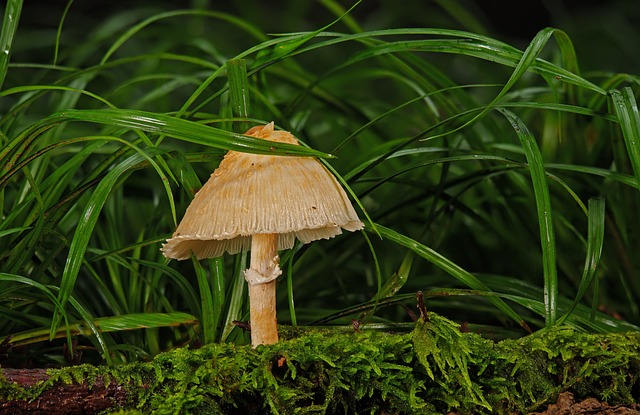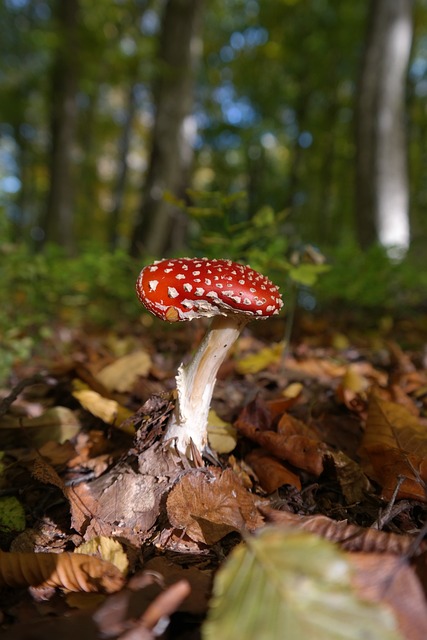Introduction
In recent years, the world has witnessed a surge in innovation and creativity as various industries have merged to create new products and experiences. One such phenomenon is the mushroom-coffee-latte, a unique fusion of coffee culture, culinary expertise, and innovative technology. This article delves into the world of mushroom-coffee-latte, exploring its significance, global impact, trends, economic considerations, technological advancements, policy and regulation, challenges and criticisms, case studies, and future prospects.
Understanding Mushroom-Coffee-Latte
The mushroom-coffee-latte is a drink that combines the rich flavors of coffee with the earthy essence of mushrooms. Its core components include high-quality Arabica coffee beans, specialty-grade mushrooms such as lion’s mane or reishi, and a blend of natural sweeteners and spices. This unique beverage has gained popularity globally, particularly among health-conscious consumers seeking functional drinks that provide mental clarity and physical rejuvenation.
Historically, the concept of mushroom-coffee-latte originated in the 2010s, with small-scale producers experimenting with various mushroom species and coffee roasting techniques. As demand grew, larger companies entered the market, refining their recipes and manufacturing processes to cater to the increasing interest.
Global Impact and Trends
The mushroom-cooffee-latte has become a global phenomenon, with production and consumption patterns varying across regions. Key trends shaping its trajectory include:
- Increased demand for functional beverages that provide mental clarity, focus, and energy
- Growing popularity of specialty coffee and gourmet drinks
- Expanding use of mushrooms in food and beverage products, driven by their perceived health benefits
- Rise of e-commerce and online marketplaces, enabling direct-to-consumer sales and global distribution
Regional variations include:
- North America: Strong demand for functional beverages and a growing interest in mushroom-based products
- Europe: High demand for specialty coffee and gourmet drinks, with a focus on artisanal production methods
- Asia: Large-scale production and consumption of mushroom-coffee-latte, driven by the region’s vast population and growing middle class
Economic Considerations
The mushroom-cooffee-latte industry is characterized by:
- High demand for high-quality ingredients and equipment
- Growing competition among producers and retailers
- Increasing importance of e-commerce and online platforms in distribution channels
- Potential for market consolidation and vertical integration as the industry matures
Investment patterns include:
- Venture capital funding for startups and small-scale producers
- Private equity investments in established companies looking to expand their product lines
- Strategic partnerships between coffee roasters, mushroom suppliers, and distributors
Technological Advancements
Significant technological advancements in the mushroom-coffee-latte sector include:
- Advanced coffee roasting techniques for consistent flavor profiles
- Improved mushroom cultivation methods for increased yields and quality
- Development of proprietary blends and formulas for unique flavor profiles
- Integration of artificial intelligence (AI) and machine learning algorithms to optimize production processes
Policy and Regulation
Key policies, regulations, and legislative frameworks governing the mushroom-coffee-latte industry include:
- Food safety standards and regulations for ingredient sourcing and manufacturing processes
- Trade agreements and tariffs affecting global supply chains
- Intellectual property protections for proprietary blends and formulas
- Environmental and sustainability regulations for packaging and waste management
Challenges and Criticisms
The mushroom-cooffee-latte industry faces several challenges, including:
- High production costs due to premium ingredients and labor-intensive processes
- Limited scalability and distribution channels compared to traditional coffee drinks
- Concerns about the environmental impact of mushroom cultivation and coffee production
- Potential negative reactions to the unique flavors and aromas
To overcome these issues, producers can focus on:
- Developing cost-effective and efficient production methods
- Building strong relationships with suppliers and distributors
- Investing in sustainability initiatives and environmentally friendly practices
- Conducting market research and customer education to address concerns about unique flavors and aromas
Case Studies
Several case studies exemplify successful applications of mushroom-coffee-latte, including:
- Mushroom-based coffee blends: Companies like Four Sigmatic and RISE Brewing Co. have developed proprietary blends combining mushrooms with specialty-grade Arabica coffee beans.
- Artisanal production methods: Small-scale producers like Portland’s Coava Coffee Roasters and Seattle’s Espresso Vivace are recognized for their high-quality, small-batch productions.
- E-commerce and online platforms: Companies like Thrive Market and Amazon have enabled direct-to-consumer sales and global distribution of mushroom-coffee-latte products.
Future Prospects
The future outlook for the mushroom-coffee-latte industry is promising, with:
- Growing demand for functional beverages and gourmet coffee
- Increasing popularity of mushroom-based products in food and beverage industries
- Expanding online marketplaces and e-commerce platforms enabling global distribution
- Potential for market consolidation and vertical integration as the industry matures
Conclusion
In conclusion, the mushroom-coffee-latte is a unique and innovative product that has captured the attention of consumers worldwide. As demand continues to grow, it is essential to consider the challenges and criticisms faced by this industry and develop strategies to overcome them.
FAQ Section
Q: What are the benefits of mushroom-based coffee drinks?
A: Mushroom-based coffee drinks are believed to provide mental clarity, focus, and energy due to the perceived health benefits of mushrooms like lion’s mane and reishi.
Q: Are mushroom-coffee-latte products expensive?
A: Yes, high-quality mushroom-coffee-latte products can be more expensive than traditional coffee drinks due to premium ingredients and labor-intensive production processes.
Q: Is mushroom-coffee-latte a trend or a long-term phenomenon?
A: While the popularity of mushroom-based products may fluctuate, the demand for functional beverages and gourmet coffee is expected to continue growing in the long term.

Mushroom Coffee Latte: Awakening Health and Vitality
The mushroom coffee latte is an emerging trend in health-conscious beverages, combining the invigor…….
Read More
Harnessing Health: The Definitive Guide to Mushroom Coffee Latte Benefits
Mushroom coffee lattes have risen in popularity as a health-enhancing alternative to traditional co…….
Read More
Energize Naturally: Discovering the Mushroom Coffee Latte Trend
The mushroom coffee latte trend is all about blending the energizing qualities of coffee with the ad…….
Read More
Revitalize Your Day: Discovering Mushroom Coffee Latte’s Invigorating Benefits
Mushroom coffee lattes represent a fusion of traditional coffee's invigorating effects with the…….
Read More
Mindful Mornings Awakened: Mastering the Mushroom Coffee Latte Ritual
The mushroom coffee latte is a transformative morning beverage blending the invigorating effects of…….
Read More
Mushroom Coffee Latte Guide: Harnessing Lion’s Mane & Cordyceps for Health Benefits
The mushroom coffee latte is a trendy beverage that merges the energizing effects of coffee with the…….
Read More
Energize Your Day: The Health and Taste Benefits of Mushroom Coffee Latte
Mushroom coffee lattes are a health-centric beverage that combines traditional coffee with the well…….
Read More